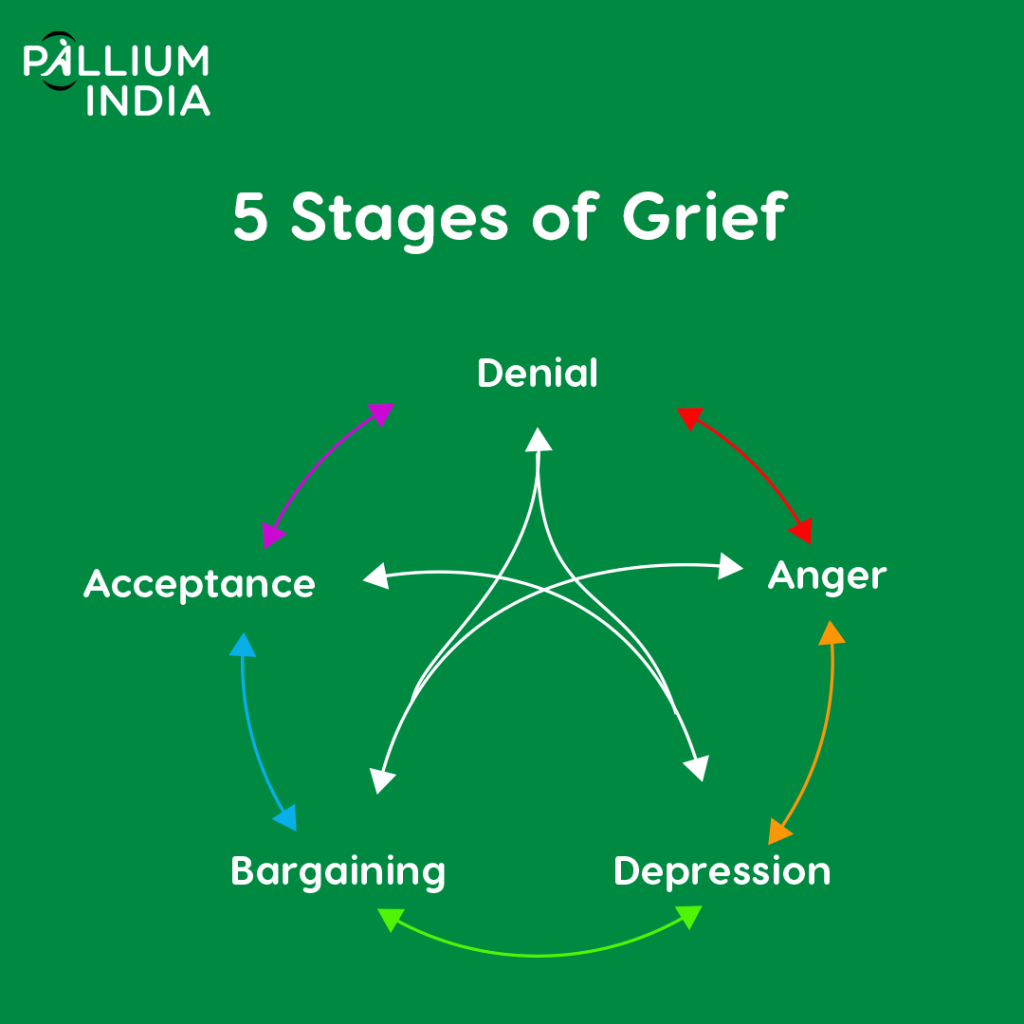The five stages of grief

Elizabeth Kübler-Ross (1926-2004) was a Swiss-American psychiatrist who introduced the concept of the five stages of grief in her book “On Death and Dying,” published in 1969. She is known for her pioneering and groundbreaking work in the study of death and dying.
This framework is often referred to as the “Kübler-Ross model” and is commonly associated with the process of coping with terminal illness and the experience of grief.
Elizabeth Kübler-Ross brought about a transformative shift in the approach to end-of-life care and bereavement support by illuminating the emotional journeys of individuals with terminal illnesses. Her impact extends to psychology, hospice care, and grief counseling.
Elizabeth Kübler-Ross’s five stages of grief are often misunderstood to be linear. However, grief is an individual process, and not everyone experiences these stages or goes through them in a linear fashion. It is important to note that not everyone may go through all of these stages, and the order may vary from person to person.
What are the five stages of grief?

Denial: This stage involves disbelief and shock in response to the news of loss – whether it has already occurred or is impending. People may struggle to accept the reality of the situation and may have difficulty processing the emotions associated with it.
Anger: Individuals may experience anger and frustration. They might feel resentful about the situation and question why this is happening to them or their loved ones. It might even unlock anger towards healthcare providers, family members, or self.
Bargaining: In this stage, people may attempt to negotiate or make deals to reverse or mitigate the loss. These bargains are made internally, at an existential level, often entreating a higher power. It may show up in the form of a patient bargaining with god to let him live till his daughters graduation.
Depression: Marked by profound helplessness and sadness, it is common for individuals in this stage to feel overwhelmed by reality and withdraw emotionally or socially. This particular stage may or may not signal clinical depression, and care providers/ family members must be vigilant about whether the person’s response is part of healthy grieving that allows them to remain functional and connected to others while experiencing extreme sadness or disconnected, dysfunctional, and hopeless.
Acceptance: Acceptance involves a patient coming to terms with the loss. While the pain doesn’t diminish, it allows individuals to adapt to the situation and accept life without the presence of what or who was lost.
Grief is a part of the illness when diagnosed, and it is common for people to move back and forth between stages or experience different emotions and coping mechanisms during their grief journey.







I do feel the above terminologies are inter-related to all keeping in view of the mental state of the individuals mind & spirit. Thanks.